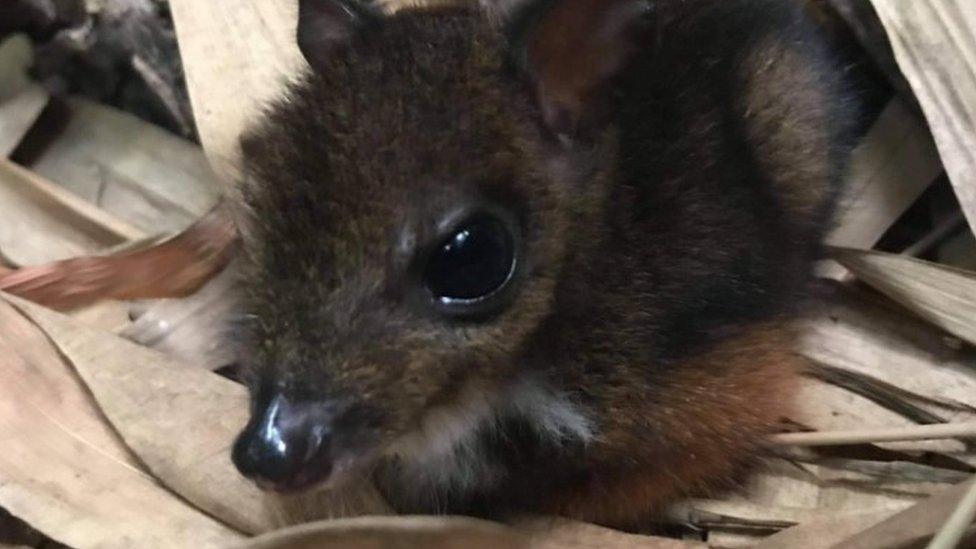Marwell Wildlife tropical animal house heated by 'zoo poo'
- Published
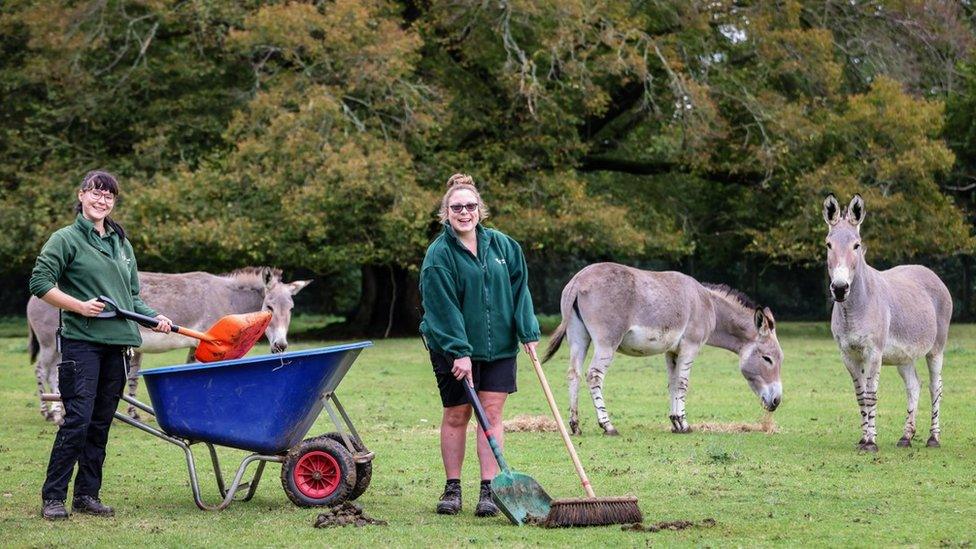
Poo from the Somali Wild Ass goes towards heating buildings at Marwell Zoo
Poo from endangered species of zebra, oryx, and wild ass is being used to heat buildings at a zoo.
Marwell Zoo is generating the renewable energy using biomass technology.
The initiative is heating a large tropical house at the Hampshire site, saving an estimated 220 tonnes of CO2 equivalent each year.
Head of sustainability Dr Duncan East said: "Using heat in this way from our own animals is unique in the UK and as far as we know across the world."
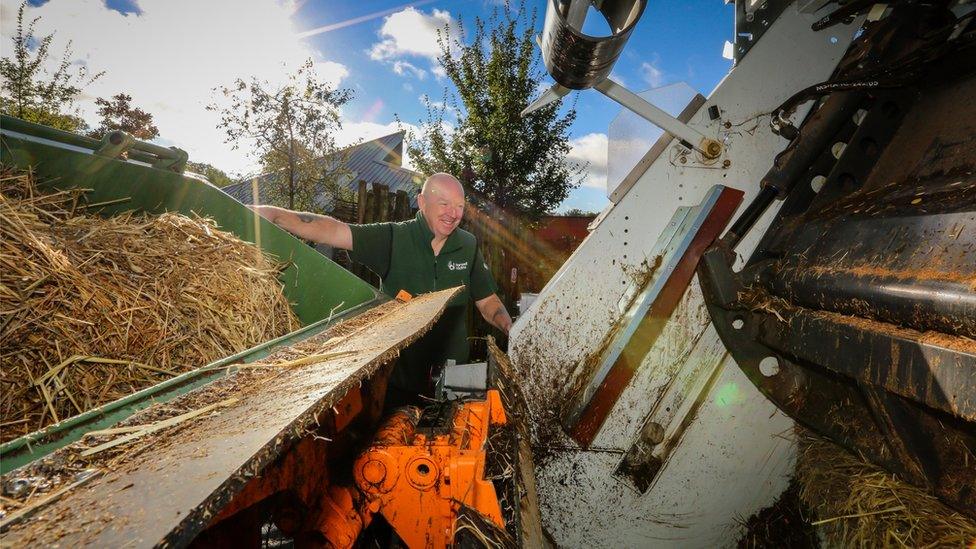
A refuse truck collects the manure...
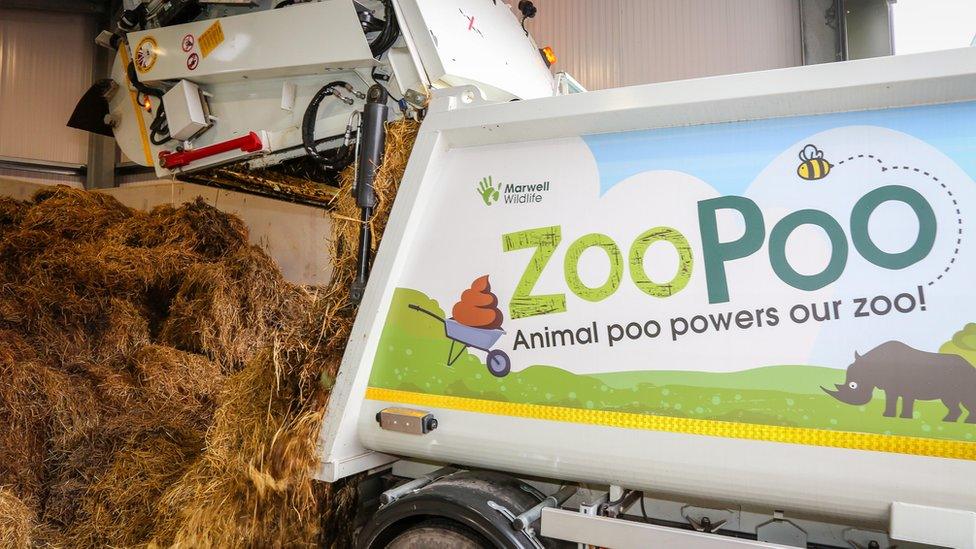
...and takes it to the Energy Centre for shredding
He added: "The urgent need to reduce the burning of fossil fuels and leave these high carbon sources in the ground means we can't act soon enough to replace the oil-fired heating systems in these buildings.
"Previously 600 tonnes of animal waste was taken off-site to be composted, and this came with a significant carbon transport cost.
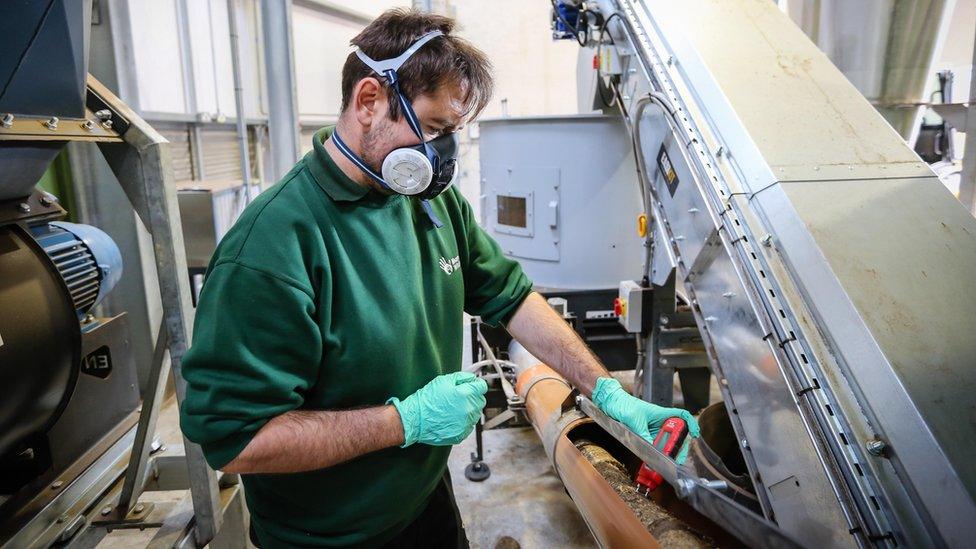
The poo is pressed into briquettes...
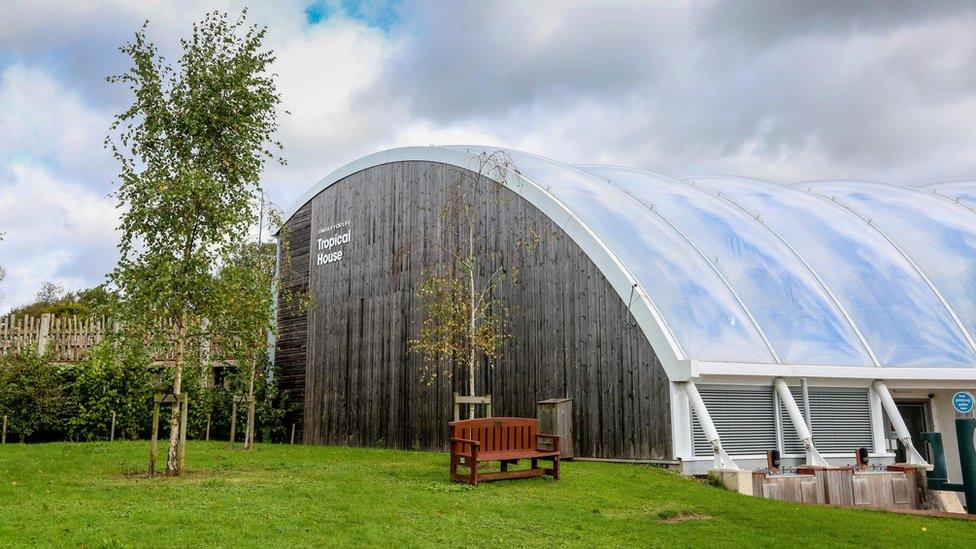
...which power a boiler at The Energy for Life: Tropical House
"We came up with the idea of biomass heat generation to reduce our carbon footprint and turn a previous waste stream into a valuable resource - achieving cost savings in the process."
The zoo poo is used to power a boiler at the Energy for Life: Tropical House attraction, with plans afoot to connect it to other buildings across the site, heating animal and human alike.
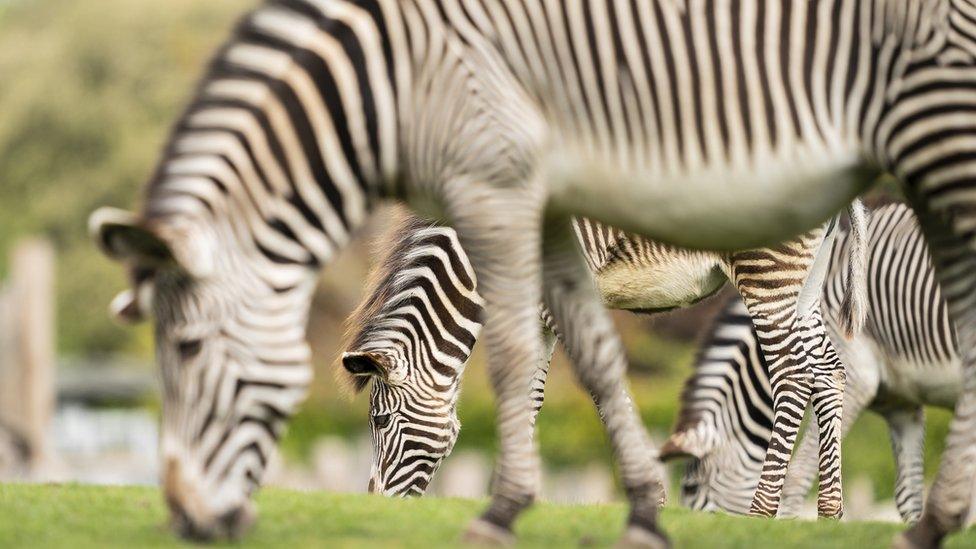
The waste is provided by endangered species such as Grevy's Zebra...
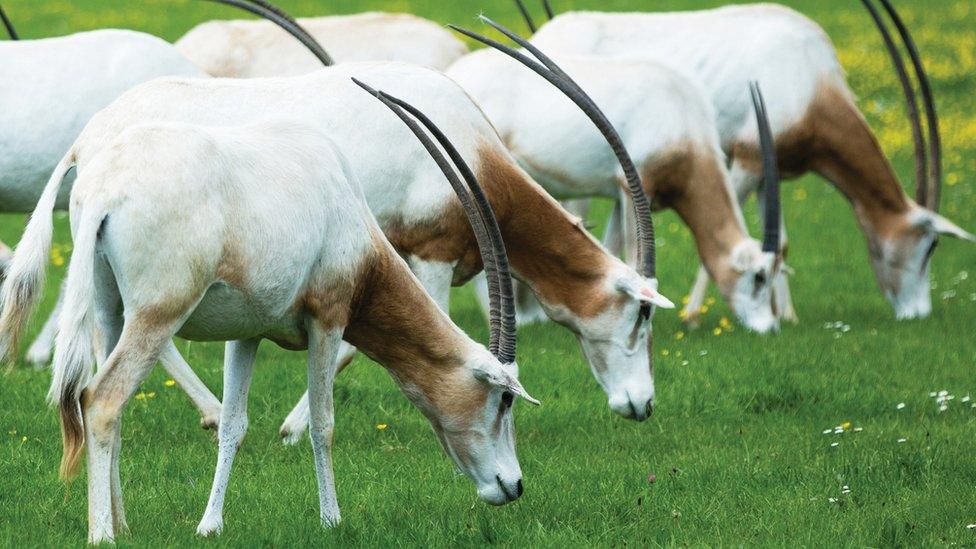
...and Scimitar-Horned Oryx
"What better way to make use of a waste material that's in abundant supply here?" Dr East added.
The charity aims to become carbon neutral by next year.

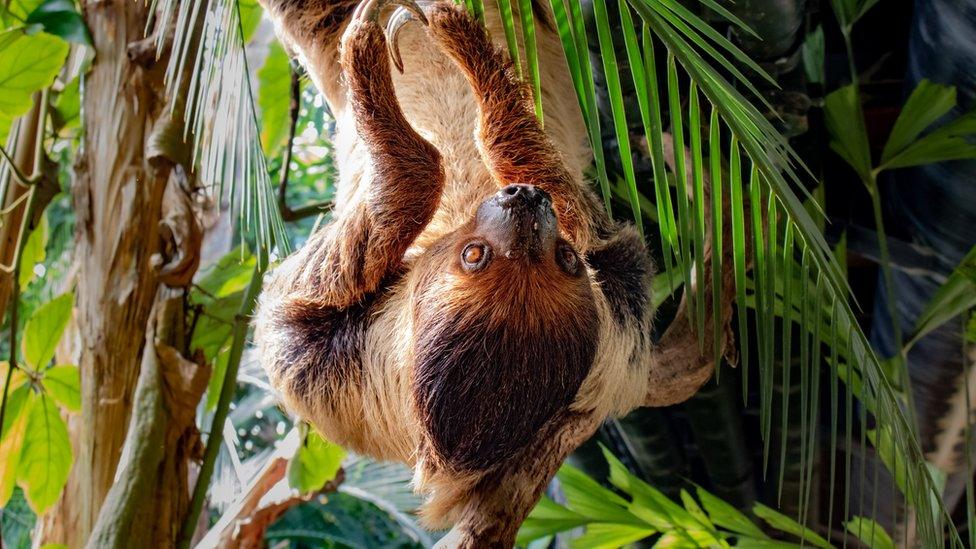
Santos the Linné's two-toed sloth is among the beneficiaries of zoo poo technology
How poo goes through the zoo
Zoo keepers sweep up the poo from the enclosures of Grevy's Zebra, Scimitar Horned Oryx and Somali Wild Ass in the morning
A refuse truck takes it to the Energy Centre
A digger drops the manure into a shredder for mixing
Its dried and pressed into briquettes, which are fed into the boiler
This produces hot water which is fed into a 15,000 litre thermal store
The water flows underground to heat the tropical house, home to a Linne's two-toed sloth, free-flying tropical birds, and crocodile monitor lizards

Follow BBC South on Facebook, external, Twitter, external, or Instagram, external. Send your story ideas to south.newsonline@bbc.co.uk, external.
Related topics
- Published31 March 2021
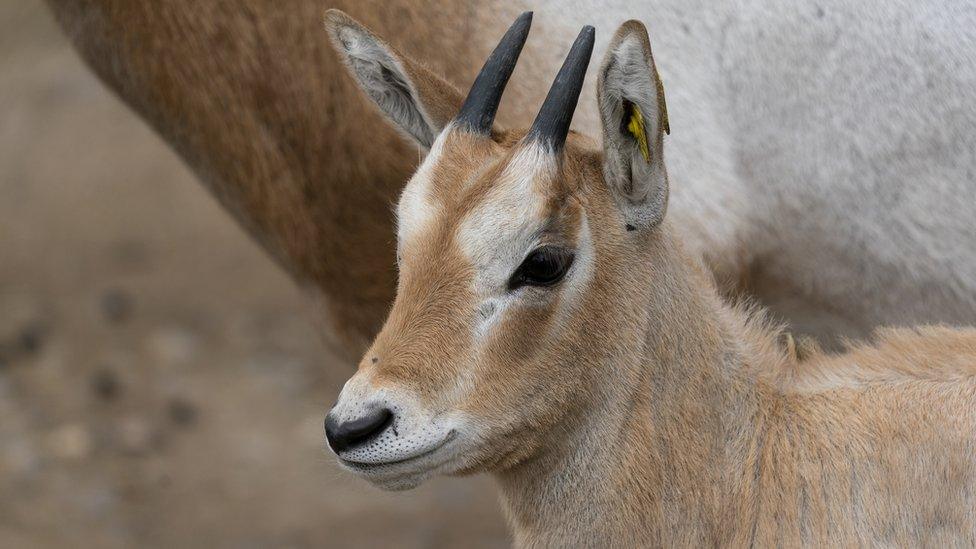
- Published24 February 2021
